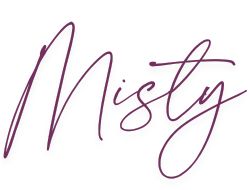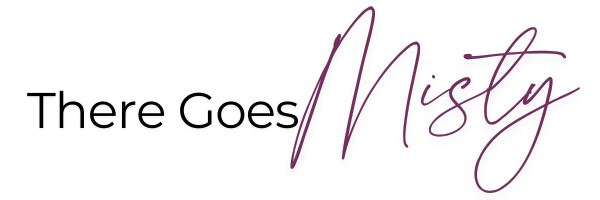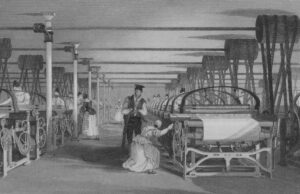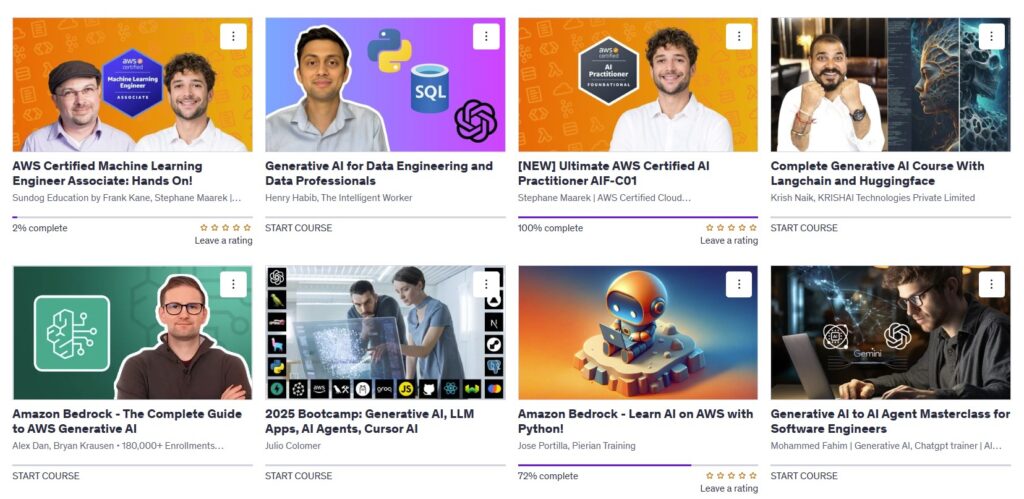
Is AI Coming for Your Job?
Let’s talk about the big elephant in the server room: Is AI going to steal all our jobs?
Short answer? Yes.
Longer answer? Yes, but that’s only half the story.
Stick with me. Because we’ve been here before, you just may not realize it.
Rewind: The Industrial Revolution Called
Back in the day when the Industrial Revolution began, people freaked out when machines started replacing manual labor. You can read any historical document from that time, and you will see workers fought back through labor movements and strikes, but also through more radical acts like the Luddite movement. And honestly, I get it. If I were out there in my bonnet hoeing crops and someone rolled up with a steam-powered tractor, I’d have questions, too.
No matter how hard people fought against it, the Industrial Revolution still happened, didn’t it? But if history tells us anything, through all the fear and uncertainty, they didn’t all end up jobless. Sure, some roles faded out, but a whole new economy was created. We shifted from fields to factories, from manual work to manufacturing magic. And what followed? Amazing inventions, increased employment, and jobs that had never existed before.
And what about the Digital Revolution? This one, I was actually alive for, and I do remember it was feared, it was fought against, it was called a “fad”. But it wasn’t a fad. It didn’t go away. No matter how hard it was fought against, the computers, the Internet, and all the crazy technology that came flooding into our lives led to mass automation and the removal of many manual jobs. Not everyone embraced it, and while it replaced many jobs, it also created new jobs in software engineering, cybersecurity, and data analysis.
Fast forward to today, and we’re at the start of a new revolution. Only now, instead of steam engines or computers, it’s neural networks and algorithms.
What about Software Engineers?
I know what you’re scared of. Vibe coding…oooohhh yes, the trendy buzzword echoing through social media ads and forum posts like some kind of digital boogeyman.
What is vibe coding, anyway? Vibe coding is what we call it when someone uses AI to generate code, without actually understanding how to write a single line of it themselves.
Let me break this down outside the realm of software, because I think this applies to many industries.
Years ago, I ran a professional photography studio. I didn’t just pick up a camera and hope for the best. I went to school to learn how to be a photographer. I attended workshops, and I knew my way around aperture, ISO, and shutter speed like a chef knows their spice rack. You would never catch me in “P mode.” No ma’am.
Then came what we affectionately (and a little fearfully) called MWACs (Moms With A Camera). Thanks to the rise of affordable DSLRs, anyone could start charging for photo sessions. Cue the collective panic among professionals who’d invested years (and thousands of dollars) into perfecting their craft.
Were some of those MWACs able to take decent pictures? Sure. But did it replace what I could do as a trained pro? Not even close. Composition was off, lighting was flat, and technical flaws were everywhere. They had the tools, but not the training.
Let’s take another industry.
What if I hand you a top-of-the-line chef’s knife, put you in a commercial kitchen stocked with every ingredient imaginable, and said “Go head-to-head with Gordon Ramsay.”
Could you whip up something edible? Probably. But could you beat him? Bless your heart, but I wouldn’t put money on it.
And that’s kind of the point I’m trying to make.
Giving someone access to powerful tools and automation, whether it’s a camera, a kitchen, or a fancy AI code generator, doesn’t make them an expert. It might produce something passable, but it’s not a replacement for deep human knowledge, years of experience, and the kind of problem-solving instincts only time and trial can teach a human. Computers are great, but there are still limits.
Would you be ok if you used software that leaked your private information or kept crashing because, although it wasn’t perfect, it was cheap, fast, and good enough? Of course not, and that’s why human oversight will always be needed to some degree, and oversight can only happen with knowledge and human thought processes.
I don’t believe AI is here to replace all software engineers. Automation will decrease the IT workforce for sure, so yes, some will be replaced in exchange for a smaller and faster team, but I believe AI is here to amplify the ones who know and embrace AI by becoming experts at working with it.
Back to the vibe coding fear…the difference between a professional software engineer and a vibe coder? We’re not trusting and guessing to make something passable. We’re guiding, planning, and caring about our work. And that makes all the difference.
AI Isn’t Killing Jobs…It’s Changing the Game
AI is not the grim reaper of your career. But it will shake up your life and force you to get your act together.
Yes, AI will absolutely change and impact every industry. No exceptions. From healthcare to marketing, finance to farming, AI is going to touch it all. But with that change comes new careers, new niches, and new chances to grow.
Don’t believe me? Take a look at this list, which is just some of the roles already shining in the spotlight for job roles:
- Conversational AI Designer
- Machine Learning Specialist
- AI UI Designer
- AI Marketing Specialist
- Data Scientists
- AI Systems Trainer
- IT Security Analysts
- AI Developers and Engineers
- Prompt Engineers (although I believe all jobs will require this eventually)
- AI Business Analyst
- AI Governance Expert
- AI Risk Assessment Specialists
- AI Ethicists
And friends, we are just getting started. There are opportunities in the making that are going to blow this list up in a big way!
So, How Do You Prepare for a Job That’s New or Doesn’t Exist Yet?
Two words: Keep learning.
Education has never been more accessible. I’m currently in college working on a degree in Artificial Intelligence, yep, at 50 (because midlife crises for some mean buying motorcycles, but midlife reinventions? That’s my jam!).
But you don’t need a four-year degree to get started. There are incredible resources at your fingertips:
- Udemy, Coursera, Skillshare (affordable and legit)
- YouTube (free knowledge buffet)
- AWS and Oracle AI training (platform-specific deep dives)
- LinkedIn groups, AI meetups, and local cohorts (the power of community, y’all)
Some of the best learning I’ve done has come from talking with others walking the same path, or learning from other developers and teachers through online methods. We’re all just figuring it out, one prompt at a time.
AI Won’t Replace You Unless You Refuse to Evolve
Here’s the real truth: AI isn’t here to take your job…unless you choose to let it.
The people who will thrive in this new revolution are the ones who stay curious, keep growing, and learn how to work with AI, not against it. Whether you’re in IT, customer service, education, or art, understanding how to design, use, and ethically implement AI is the new professional flex.
Want to future-proof your career?
- Learn the tools.
- Understand the risks.
- Be the person in the room who not only gets AI, but also knows how to make it work for the mission.
The Future Is Bright (and Probably Powered by GPT)
So no, the AI robots aren’t coming to destroy us. They’re coming to collaborate and maybe help us cut down on some of that repetitive nonsense we never liked doing anyway.
The question isn’t “Will AI replace jobs?”. We already know the answer to that. The real question you should be asking yourself is “Will you be ready for the ones it creates?”
I know I will be.
From one nerd to another…don’t fear the shift. Become part of it.

Share this article
Follow me
Hey friend! Heads up: some of the links I share may earn me a small commission if you decide to buy—because mama’s gotta keep the coffee fund alive. Thanks for your support!
A quick overview of the topics covered in this article.
Latest articles
June 13, 2025
April 14, 2025




